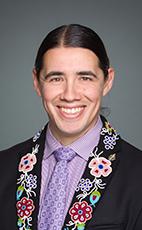Mr. Speaker,
[Member spoke in Cree]
[English]
The hon. Thelma Chalifoux, a Métis from Alberta and first indigenous woman in the Canadian Senate, died in St. Albert on Friday. She was 88 years old. “It was a very touching, private moment as we watched our dear mother, grandmother and matriarch go back to her heavenly home,” her eldest son, Robert Coulter, is reported to have said.
Chalifoux was active in helping to get facilities and programs like friendship centres for indigenous Canadians up and running. She was also interested in housing, education, suicide, incarceration, domestic abuse, cross-cultural training in government departments, and alcoholism. She was important in getting the Cree language taught in northern schools. Recently, she helped start the Michif Cultural and Métis Resource Institute, a museum and resource centre in St. Albert aimed at preserving and promoting regional Métis culture.
She was a trailblazer and a hero.
[Member spoke in Cree]

